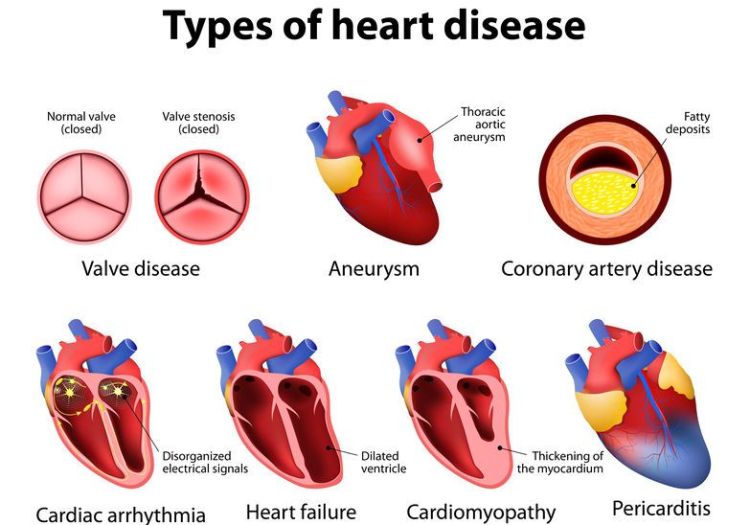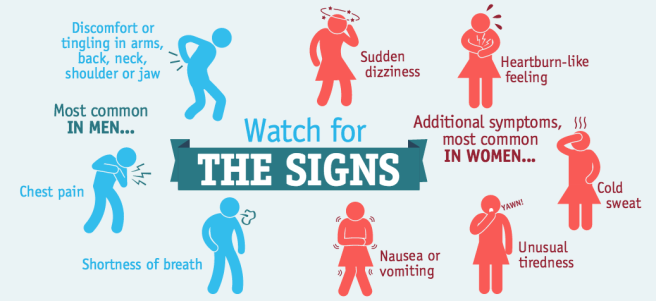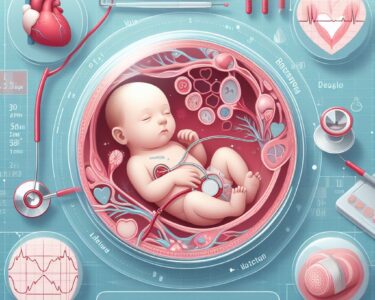Cardiovascular diseases (CVDs) pose a significant health threat worldwide, claiming millions of lives each year. These conditions encompass various disorders affecting the heart and blood vessels. To empower you with knowledge and understanding, this article will demystify the top 5 cardiovascular diseases and provide essential insights into prevention and management.
Understanding Cardiovascular Diseases

Before we delve into the specifics of each condition, it’s crucial to comprehend the broader category of cardiovascular diseases (CVDs). CVDs encompass a range of disorders affecting the heart and blood vessels. Our focus in this article is to demystify the top 5 cardiovascular diseases, providing essential insights into prevention and management.
The Leading Causes of Cardiovascular Diseases
What triggers these diseases? Multiple factors contribute to their development. Let’s explore the primary causes:
Lifestyle Choices: Unhealthy habits such as smoking, poor diet, lack of physical activity, and excessive alcohol consumption significantly raise the risk of cardiovascular diseases.
Genetic Predisposition: Family history plays a role; if your relatives have a history of CVDs, you may be genetically more susceptible.
Underlying Medical Conditions: Conditions like diabetes and hypertension (high blood pressure) can pave the way for cardiovascular diseases.
Types of Cardiovascular Diseases

Now, let’s delve into the top 5 cardiovascular diseases you should be aware of:
1. Coronary Artery Disease (CAD)
CAD is a prevalent cardiovascular ailment. It involves the narrowing of coronary arteries, which supply blood to the heart. When these arteries become obstructed, angina (chest pain) or heart attacks can occur.
2. Stroke
A stroke, often referred to as a “brain attack,” happens when the blood supply to the brain is disrupted. Strokes can result in various complications, including paralysis and cognitive impairments.
3. Heart Failure
Heart failure doesn’t mean the heart has stopped working. Instead, it signifies the heart’s inability to pump blood effectively, leading to fluid buildup in the lungs and other organs.
4. Hypertension (High Blood Pressure)
Hypertension, or high blood pressure, is a silent killer. Consistently elevated blood pressure puts immense strain on the heart and is a significant risk factor for other cardiovascular diseases.
5. Peripheral Artery Disease (PAD)
PAD manifests as the narrowing of arteries in the limbs, primarily the legs. This condition can cause pain, cramping, and difficulty walking. In severe cases, it may even lead to amputation.
Recognizing the Symptoms

To safeguard your health, it’s crucial to recognize the symptoms of cardiovascular diseases:
Chest Pain and Discomfort
Chest pain, often described as angina, is a classic symptom of heart-related issues. It can feel like pressure, squeezing, or burning in the chest.
Shortness of Breath
Feeling breathless, especially during physical activity or while lying down, can be a sign of heart-related problems.
Fatigue
Persistent fatigue and weakness may occur due to reduced blood flow and oxygen supply to the body.
Dizziness
Dizziness or lightheadedness can result from insufficient blood flow to the brain, a common issue in cardiovascular diseases.
Swelling
Swelling in the legs, ankles, and abdomen can be an indicator of heart failure or other cardiovascular complications.
Risk Factors
Understanding the risk factors associated with cardiovascular diseases is paramount:
Lifestyle Factors
Unhealthy habits, such as smoking, an unhealthy diet, physical inactivity, and excessive alcohol consumption, significantly elevate the risk of developing these diseases.
Genetic Factors
If you have a family history of cardiovascular diseases, your genetic predisposition might increase your susceptibility.
Medical Conditions
Conditions like diabetes and hypertension can set the stage for cardiovascular diseases, underscoring the importance of managing these underlying health issues.
Diagnosis and Testing

Early diagnosis is crucial for effective management. Healthcare professionals employ various tests to identify cardiovascular diseases, including electrocardiograms (ECGs), echocardiograms, and blood tests.
Prevention and Lifestyle Changes

Prevention is often the best medicine. You can reduce your risk of cardiovascular diseases through lifestyle modifications:
Healthy Diet
A balanced diet rich in fruits, vegetables, whole grains, lean proteins, and healthy fats can significantly lower your risk.
Regular Exercise
Physical activity improves cardiovascular health. Aim for at least 150 minutes of moderate-intensity exercise per week.
Smoking Cessation
If you smoke, quitting is one of the most significant steps you can take to protect your heart.
Limit Alcohol
Moderate alcohol consumption is generally considered safe, but excessive drinking can harm your cardiovascular system.
read more about Empowering Heart Health: Effective Strategies for Preventing Heart Disease”
Treatment Options
If you are diagnosed with a cardiovascular disease, various treatment options are available, depending on the specific condition. These may include medications, lifestyle changes, surgical interventions, or a combination of these.
Living with Cardiovascular Diseases
Managing a cardiovascular disease involves making long-term lifestyle changes, taking prescribed medications, attending regular medical check-ups, and adopting a positive mindset.
Support and Resources
Support groups and educational resources are invaluable for individuals living with cardiovascular diseases and their caregivers. Connecting with others who face similar challenges can provide emotional support and practical advice.
Conclusion
In conclusion, cardiovascular diseases are a formidable health challenge, but they are not insurmountable. By understanding the causes, recognizing the symptoms, and embracing a heart-healthy lifestyle, you can reduce your risk and lead a fulfilling, heart-healthy life.
FAQs
1. What are the main risk factors for cardiovascular diseases?
The primary risk factors include unhealthy lifestyle choices, genetic predisposition, and underlying medical conditions like hypertension and diabetes.
2. Can cardiovascular diseases be completely prevented?
While complete prevention may not be possible, adopting a heart-healthy lifestyle can significantly reduce your risk.
3. How is hypertension different from other cardiovascular diseases?
Hypertension, or high blood pressure, is a risk factor for various cardiovascular diseases but is also considered a separate condition. It involves consistently elevated blood pressure levels.
4. What role does diet play in preventing these diseases?
A healthy diet is instrumental in preventing cardiovascular diseases. It helps control weight, blood pressure, and cholesterol levels.
5. Are there any new advancements in cardiovascular disease treatments?
Yes, ongoing research leads to continuous advancements in treatments, including medications, minimally invasive procedures, and surgical techniques.







 Viesearch - The Human-curated Search Engine
Viesearch - The Human-curated Search Engine
